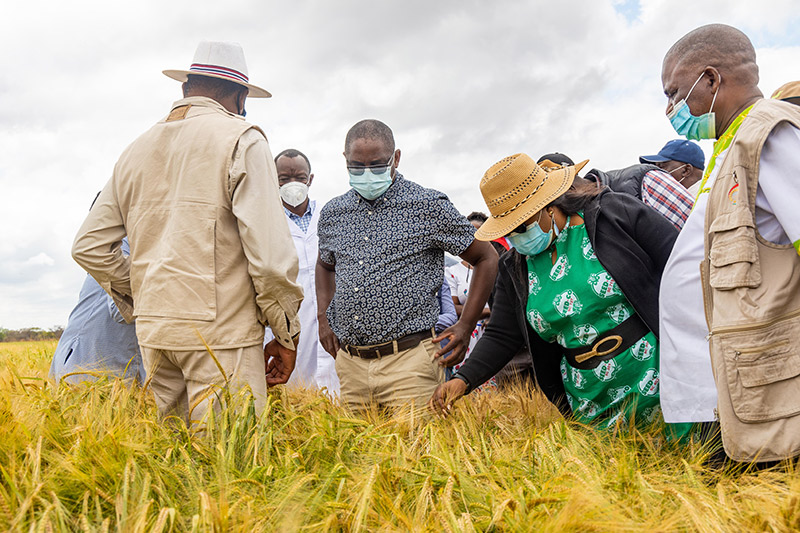

Our beverages and some of our packaging materials are made from agricultural ingredients which we source from many kinds of suppliers, ranging from smallholder farmers, local communities, to large and multinational suppliers. These supply chains depend on thriving communities and healthy ecosystems which require continuous improvements in farming methods and technologies, to build resilience through crop management, improved varieties, and risk mitigation tools.
Improvements in agriculture can help reduce greenhouse gas emissions, protect watersheds, and improve biodiversity. Beyond these environmental aspects, we know the impacts of climate change in agriculture are closely linked with the social and economic challenges faced by farmers.
In Zimbabwe, we work directly with over 11 000 commercial and smallholder farmers under our contract schemes who produce over 100% of our barley and sorghum grain requirements and over 50% of the business requirement for maize. Sugar and citrus are largely sourced directly and indirectly from local farmers.
Both Natbrew Zambia and UNB South Africa are investing in similar contract farming arrangements for both maize and sorghum.
Our goal is to ensure that 100% of our direct farmers will be skilled, connected and financially empowered by 2030.
In the current year, 100% of our direct farmers met our criteria for skilled; 90% for connected and 95% for financially empowered. A contracting split of 90:10 (in terms of tonnage) between communal and commercial sector was achieved in 2023 sorghum contract period. In barley production, 47 commercial farmers were contracted.
We partner staff from the department of research and specialist services in the ministry of agriculture. We take the lead in the development of new crop varieties suited to local conditions, and work with farmers to improve their agricultural practices and operations. We have a longstanding partnership with the Agricultural Research Trust at their farm in Harare for tailormade breeding of barley varieties in association with leading seed houses and other agribusiness companies. We believe technology has enormous potential to positively transform the future of farming. We are investing in key enablers and lasting programs that will help improve their yields, profitability, and stewardship of natural resources.


































